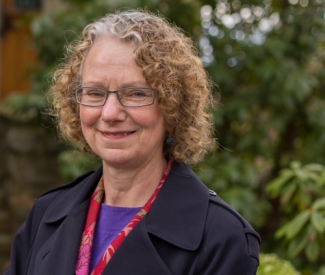
SEASON 3 EPISODE 5
November 30th at 10 AM PT/ 7 PM CET
Horses as Catalysts for Healthy Ageing
WITH ALICE MACGILLIVRAY
Horses are very different than dogs or cats. Setting aside the obvious differences of size and care requirements, they are prey animals. This makes a huge difference to communication and trust-building. Time with horses can teach people many lessons about themselves: their health and well-being, their potential and their leadership.

STREAMED LIVE HERE on November 30th 2017
HEIDI’S INTRODUCTION
Many women in their 50s, 60s, 70s, and beyond have horses. Although most had horse experience as children or young adults, it is not unusual for women approaching retirement age to get their first horse, or first horse in decades. Others don’t take the plunge into full ownership, but lease a horse part time, take lessons, volunteer at a rescue centre, or attend workshops to learn more about themselves by interacting with horses. Women over 50 do a huge range of wonderful and often amazing activities with horses, and stay fit in the process. When Alice interviewed mature horse owners, they said one of the most important reasons for spending time with horses is to stay in touch with nature.
Horses are very different than dogs or cats. Setting aside the obvious differences of size and care requirements, they are prey animals. This makes a huge difference to communication and trust-building. Time with horses can teach people many lessons about themselves: their health and well-being, their potential and their leadership.
ALICE’S STORY
About a year after getting her mare, Alice was injured and couldn’t do much for several weeks. Friends encouraged her to write a book because she had learned so much about finding and caring for the right horse. At first she dismissed the idea. Experts had written many excellent books available covering almost every aspect of horses, horseback riding and horse ownership.
Then she realized that through her education and consulting, she was an expert in relevant topics including adult learning and leadership. And she had deep experiential knowledge of becoming a first time horse owner when society seemed to think it was too late. So as she recovered, she wrote Riding Horseback in Purple.
The book’s chapter titles include “White Wine and Carrots: On Being a Mature Horsewoman,” “Learning to Speak Horse,” and “Fear and Courage.” Alice is also a featured writer for the blog Women of Age Riding Horses:
ABOUT ALICE MACGILLIVRAY
In the 1960s, when Alice got her first summer job as a veterinary assistant, it was “common knowledge” that women didn’t become veterinarians, especially for large animals. Without putting up a fight, Alice set aside her career dreams (in her community it was common knowledge that women didn’t fight tradition). But her love of animals never went away. Her employment evolved over time, including work in several major park organizations and a program director position with a university. She was the first person in her family to go beyond highschool. She earned an undergraduate degree and an MA in Leadership in her 40s, and an MA in Human Development and a PhD in Human and Organizational Systems in her 50s. Her children were living on their own by then. In her late 50s, Alice—now working as a consultant from her home office—dared to revisit the dream of owning a horse. She dove into research to see if this was possible. Did she have the resources? Could she develop the skills? What sort of a support network might she develop? How could she find the right horse? The year she was going to turn 60, her horse stepped off the trailer and into her life. And she has never regretted the decision.
AUTHOR WEBPAGES
AUTHOR RESOURCES

Download the presentation file HERE


